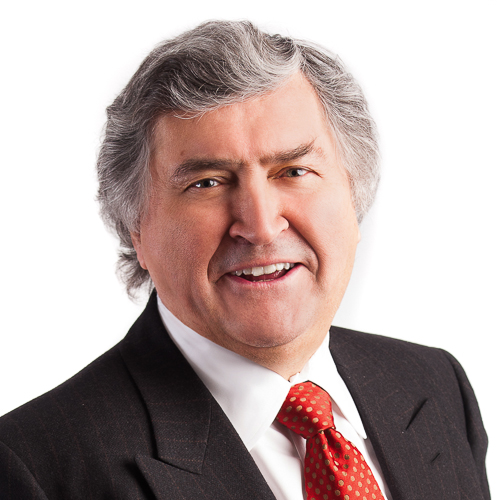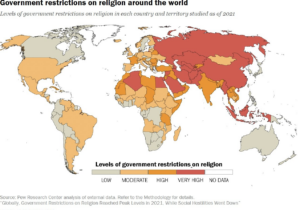On December 22, Indonesian President Joko Widodo (Jokowi) reshuffled his cabinet. The shuffle was expected, especially in the light of accusations by critics that the government’s response to the COVID-19 pandemic had been weak. But it did contain a big surprise on the religious front.
Several ministers involved in the pandemic response were let go, as had been predicted, but there was one new appointment that was unexpected. This was the replacement as minister of religious affairs of Fachrul Razi, a retired army general, by Yaqut Cholil Qoumas, widely known as Gus Tutut or Gus Yaqut, the general chairman of GP Ansor, the youth wing of Nahdlatul Ulama (NU).
At one level this shift was not unusual, since the powerful ministry of religious affairs has often been held by someone close to NU, which is Indonesia and the world’s largest Muslim organization. The connection provides the possibility both of patronage and also extensive grassroots contacts.
But Yaqut is as far as you can get from a run-of-the-mill religious bureaucrat. As I describe in Providence and elsewhere, he, along with his colleague and brother Yahya Cholil Staquf, general secretary of the NU Supreme Council and a leader in Ansor, has and does fight strenuously and continually against extremism. In the 2017 election for governor of Jakarta, he endorsed Basuki Tjahaja Purnama, popularly known as Ahok, even though the latter was a Christian who had been accused of blasphemy. He also calls for genuine reform and renewal in Islamic theology and law. As part of these efforts, Ansor recently hosted US Secretary of State Mike Pompeo.
In May 2017, Ansor convened more than 300 international religious scholars to consider the “obsolete tenets of classical Islamic law” that call for “perpetual conflict with those who do not embrace or submit to Islam.” This gathering drafted a “Declaration on Humanitarian Islam” that built on earlier statements, including the May 16, 2016, NU-hosted International Summit of Moderate Islamic Leaders (ISOMIL). At the press conference announcing this Declaration, Yaqut stated:
It is false and counterproductive to claim that the actions of al-Qaeda, ISIS, Boko Haram, and other such groups have nothing to do with Islam, or merely represent a perversion of Islamic teachings. They are, in fact, outgrowths of Wahhabism and other fundamentalist streams of Sunni Islam.
There are not many ministers of religious affairs who would be that blunt—to put it mildly. Indeed, one would be hard put to find any North American or European cabinet official who would be willing to say this, though many believe it to be so.
Pak Yaqut’s brother, Pak Yahya, continues to be equally outspoken. In the Wall Street Journal on January 14, 2021, he asks, “Why is the modern world plagued by Islamic extremism? Why do al Qaeda, Boko Haram and Islamic State display such savagery?” He answers:
As I told the United Nations General Assembly recently, the doctrine, goals and strategy of these extremists can be traced to specific tenets of Islam as historically practiced. Portions of classical Islamic law mandate Islamic supremacy, encourage enmity toward non-Muslims, and require the establishment of a universal Islamic state, or caliphate. ISIS is not an aberration from history.
He calls on “Muslims and non-Muslims to work together, drawing on peaceful aspects of Islamic teaching to encourage respect for religious pluralism and the fundamental dignity of every human being.”
Yaqut’s appointment is doubly interesting since it concerns the understanding of Islam itself. As political analyst Professor Adi Prayitno told the Jakarta Post, “Yaqut is not only [someone who is] prepared to compete at the discourse level; he is prepared to put his life on the line.” He, and Ansor generally, have fought against extremism, both the violent kind and also in ideas.
Ansor also has a militia unit, Banser, with a claimed membership of several million and which this Christmas, following its usual annual practice, has been protecting churches in Indonesia. Jokowi himself said in 2018 that “GP Ansor has shown that our country’s heritage is the spirit of warriors and the sincerity of heroes. GP Ansor can’t be easily threatened, and that’s our spirit as a nation.”
Since his appointment, Yaqut has hit the ground running. After his swearing-in, he averred, “There are a lot of things that I want to work on, but it can be summarized in a short sentence: How to turn religion into an inspiration, not an aspiration… We will be seeing solutions from the Religious Affairs Ministry not seen in previous periods.” He insisted that he aspired to be a “minister of religious affairs for all religions, not just for one faith.” After visiting a church in Semarang, he gave Christmas greetings, especially to “all those who are experiencing difficulties due to the COVID-19 pandemic, all over the world,” adding that, “Jesus is Emmanuel, which means God-with-us. This means that even in difficult moments, the presence of God, who is always with us, guides and helps us.”
Responding to a question from noted and forthright Islamic scholar Azyumardi Azra, he also promised to defend the religious freedom of minorities, notably including Indonesia’s Shia and Ahmadiyah. In Indonesia it is not religious minority groups per se that suffer the most persecution, but rather the purported heretical movements, those that are seen to be deviations from the major religions. Indonesian Sunnis accept Shi’a as Muslims, but some do not. So they can suffer discrimination. Ahmadiyah are in a worse situation and are rejected as authentically Muslim by most Sunnis, so his mentioning of them as needing protection is significant.
The Indonesian Ahmadiyah Congregation (JAI) and the Setara Institute, a noted human rights group, praised the minister’s words and called on him to translate them into action, particularly in revoking the 2008 Joint Ministerial Decree on Ahmadiyah. The decree bars them from engaging in religious activities that are “not in accordance with mainstream Islam” and also bans them from trying to spread their views. In contrast, Anwar Abbas, the deputy chair of the government-funded Indonesian Ulema Council (MUI), urged Yaqut to be cautious because it was “a theological issue, a sensitive matter,” and that he needed to consult with senior Muslim clerics on the issue.
In partial response, Yaqut stated that “I’ve never said I’d protect Shia and Ahmadiyah organizations or groups. My stance as a religious affairs minister is to protect them as citizens.” Some have taken these words as a partial backtracking from his initial statements, and they might be. But they can also be taken as an assurance that he is not making theological judgments on the validity but as a government minister defending their rights as Indonesians per se. This is an important distinction, one that can easily be lost in Indonesia, as elsewhere, and it is a valid and valuable one to make.
Through most of his time as president, Jokowi, though widely seen as religiously tolerant in his own views, has not taken many steps to safeguard religious freedom or to deter religious repression. His administrations have often tended to be passive on the matter, even inert, though with occasional bouts of repression. We can hope that his appointment of the already outspoken Yaqut signals a welcome change of policy.






